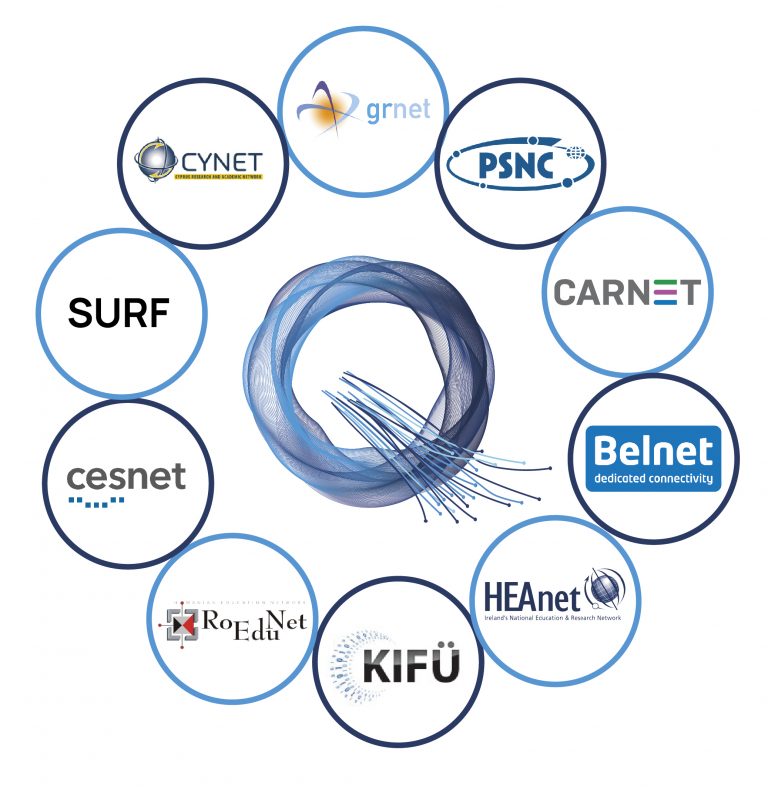
Collaboration with EU funded projects
The HellasQCI project aims at establishing synergies and coordination with similar EU projects on Quantum Communication. HellasQCI communicate and interact with the European Initiative on Quantum Communication Infrastructure (EuroQCI) through the dedicated CSA project PETRUS in order to streamline communication, standardization and training activities when possible and to enhance coordination and transfer of knowledge and best practices between NatQCI projects. Moreover, project partners will seek to establish synergies on topics of joint interest with other national QCI consortia and their partners. Additionally, project partners will pursue to become engaged in the activities and events of the Quantum Flagship community as well in the ones of the quantum technologies clusters such as the Quantum Industry Consortium (QuIC) and the Quantum Business Network (QBN) to promote the project’s activities and exchange best practices to further streamline the project’s activities.
HellasQCI, through GRNET and the Ministry of Digital Governance, successfully forged seven partnerships (Letters of Support – LoS) during the proposal phase with National Quantum Communication Infrastructures (NatQCIs) in Austria, Luxembourg, Bulgaria, Cyprus, Malta, Poland, and Ireland.
IrelandQCI (Coordinated by Waterford Institute of Technology) and Lux4QCI (Coordinated by the University of Luxembourg) became Associated Partners of HellasQCI project and vice versa GRNET became Associated Partner to the IrelandQCI and LuxQCI projects, actively participating in various activities and to the Project Management Board meetings.
GRNET, the National Research and Education Network of Greece, is a member of the Pan-European Academic Network GÉANT. Within GÉANT, 10 National Quantum Communication Infrastructures
(NatQCIs) collaborate through GN5-1 and the GÉANT Quantum Strategy Forum (including events like World Quantum Day and TNC23).
The HellasQCI project is coordinated by Greece’s National Research and Education Network GRNET. This NREN has established a close collaboration with nine National Research and Education Networks throughout Europe, which are the following:
1. PIONIERQ – Poland | PSNC: The PIONIER-Q project aims to provide a quantum key distribution infrastructure and a quantum communication network using the existing fibre infrastructure of the PIONIER network. Encryptors and quantum key distribution (QKD) devices will be installed at selected points in the network. QKD devices will send a symmetric encryption key to encryptors at both locations via dedicated optical fibres.
2. CroQCI – Croatia | CARNET: The CroQCI Consortium consists of key research and scientific institutions, higher education establishments, public institutions, and public enterprises authorized by the Ministry of Science and Education to develop the national Quantum Communication Infrastructure (QCI) network and prepare and implement the national project Croatian Quantum Communication Infrastructure – CroQCI.
3. BE-QCI| BELNET: The goal of BeQCI is to introduce, evaluate and develop quantum communication infrastructure (QCI) in Belgium.
4. IrelandQCI – Ireland | HEANET: IrelandQCI, the ‘Building a National Quantum Communication Infrastructure for Ireland’ project incorporates integrating innovative and secure quantum devices and systems into conventional communication infrastructures. This will be done by enhancing the ESB Telecoms’ optical fibre network with an additional layer of security, all based on quantum physics, in particular quantum key distribution (QKD).
5. QCIHungary – Hungary | KIFU
6. RoNaQCI – Romania | RoEduNe: RoNaQCI proposes the deployment of a 1500+ km QCI network including 6 metropolitan networks
in the cities of Bucharest, Iasi, Cluj-Napoca, Timisoara, Craiova and Constanta.
7. CZQCI – Czechia | CESNET: CZQCI will deploy quantum communication infrastructure (QCI) in the Czech Republic. The infrastructure composed of advanced experimental European QKD devices will comprise: (a) backbone connecting the cities of Prague, Brno, and Ostrava, serving as a first long distance quantum communication network; (b) metropolitan side branches connecting public authorities and testing advanced use cases and scenarios; (c) advanced testing and training infrastructure concentrated in a single laboratory providing a representative sample of diverse QKD technologies.
8. QCINed – The Netherlands | SURF: QCINed started in 2023 with a volume of almost 10 Mio Eur co-funded by the EU Commission. For 30 months the partners are committed to facilitating and deploying the Dutch Quantum network.
9. CYQCI – Cyprus | CYNET: Cyprus Quantum Communication Infrastructure (CYQCI) project will address the deployment of quantum communications in Cyprus, introducing the technology to the island and setting the foundation for active participation of the country in the EuroQCI.
Moreover, HellasQCI has established close collaboration with several National QCIs (National Quantum Communication Infrastructures) of European member states including Poland (PIONIER-Q), Ireland (IrelandQCI), Croatia (CroQCI), Romania (RoNaQCI), Czech Republic (CZQCI). Austria (QCI-Cat), Luxembourg (Lux4QCI), Bulgaria (BG National QCI Plan), Cyprus (CYQCI) and Malta (PRISM).
